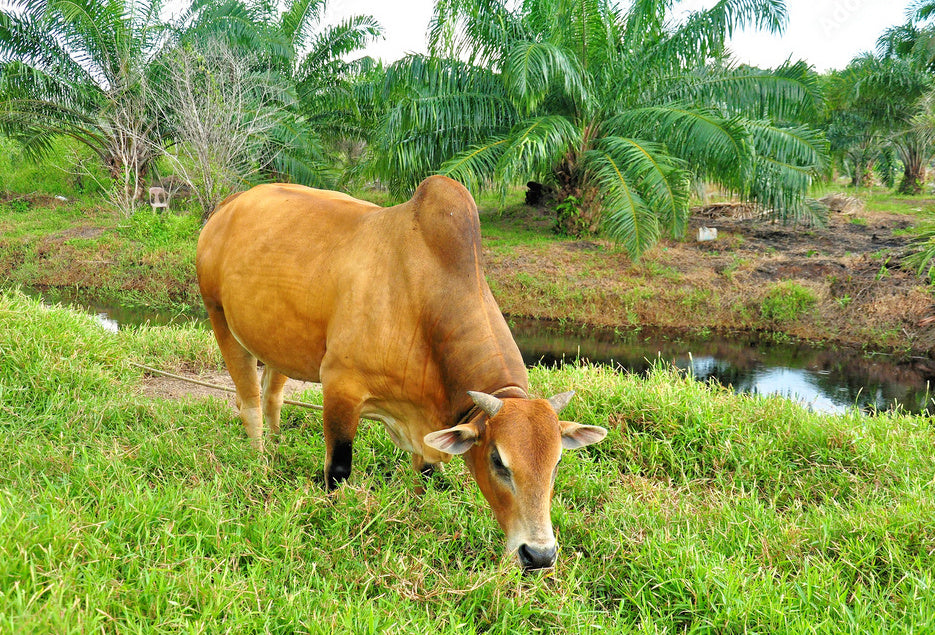At Humpy Farms, our commitment to sustainability and ethical farming practices goes hand in hand with our passion for providing the finest organic produce. We take pride in being the pioneers of an ethical organic produce brand that promotes the well-being of our planet and the animals that call it home.

Native Indian Cows: A Treasure of Biodiversity The native Indian cow, often referred to as "desi cow" or "indigenous cow," holds a special place in our hearts and heritage.
These magnificent creatures have been an integral part of Indian agriculture for centuries, providing not only nutritious A2 milk and A2 dairy products but also playing a significant role in sustainable farming. Unlike some of the modern exotic breeds, native Indian cows are well adapted to the local climate and terrain, making them hardy and resilient.
Grass-Fed, a Win-Win for Cows and Environment
At Humpy Farms, we believe that cows deserve to live a happy and healthy life, just as nature intended. Our cows roam freely in spacious pastures and graze on lush, natural grass. By allowing our cows to feed on their natural diet, we ensure they receive essential nutrients, which, in turn, benefits the quality of their milk and well-being. Grass-fed cows produce A2 milk is rich in Omega-3 fatty acids and CLA (Conjugated Linoleic Acid), which have numerous health benefits for consumers.
However, the environmental benefits of grass-fed native Indian cows extend far beyond their nutritional value.
Here's why they're better for the environment:
- Reduced Carbon Footprint: Grazing on natural grasses means these cows do not require large quantities of grain-based feed, which often necessitate extensive agricultural land and contribute to deforestation and greenhouse gas emissions. By sticking to their natural diet, our cows significantly reduce their carbon footprint, promoting a more sustainable future.
- Biodiversity Preservation: Native Indian cows are well-suited to graze on diverse plant species. Their grazing habits promote biodiversity, maintaining a balanced ecosystem that supports a variety of flora and fauna. In contrast, conventional farming practices often rely on monoculture, which can lead to habitat destruction and a loss of biodiversity.
- Soil Health and Water Conservation: Grazing cows on pastures help build healthy soil structures. Their manure serves as a natural fertilizer, enriching the soil with essential nutrients and organic matter. Furthermore, their grazing habits promote better water infiltration and retention in the soil, reducing the risk of soil erosion and water runoff.
- Minimized Chemical Use: Grass-fed cows consume little to no chemical-laden feed, reducing the likelihood of pesticide and herbicide residues entering the ecosystem through the food chain.
- Sustainable Agriculture: Embracing the traditional practice of rearing native Indian cows contributes to sustainable agriculture and supports local communities, preserving their traditional knowledge and heritage.

Supporting Humpy Farms Means Supporting the Environment
When you choose Humpy Farms' products, you are making a conscious choice to support ethical and sustainable practices that nurture the environment and promote animal welfare. We take immense pride in our role as guardians of the land and custodians of these incredible native Indian cows. Together, let's build a future where agriculture coexists harmoniously with nature, where the choices we make as consumers reverberate positively for generations to come.









